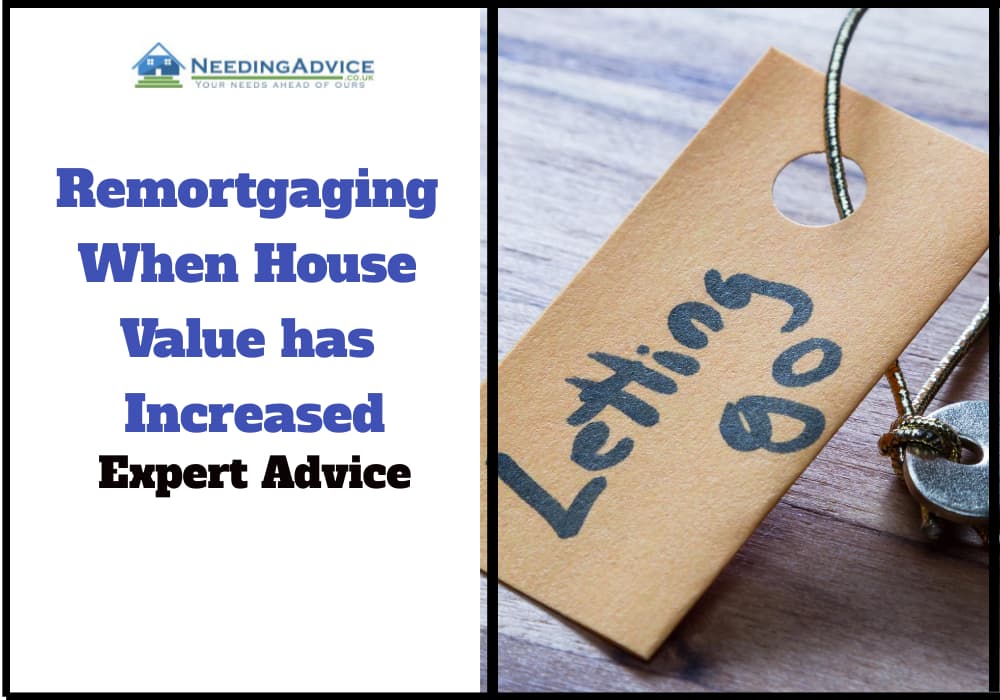Remortgaging your house can seem like quite a complex action, and there is very little online information to help you do this successfully.
However, if your house value has increased significantly, it might be worth considering. Even if you have a long time left on your mortgage term, and it will incur some arrangement fees to remortgageRefinancing an existing mortgage with a new mortgage., it could still leave you with extra money left over.
What is EquityThe difference between the value of the property and the amo...?
Equity is a pretty simple concept to understand once you get your head around it. Equity is the share of the value of a property that you own instead of the share of the value of a property as part of a mortgage.
So, for example, if your home is worth £300,000, and your mortgage is worth £150,000, then your equity is £150,000.
There are several ways that you can utilize your equity to benefit your financial situation, which we will cover in this article.
Accessing equity selling up
One of the easiest ways to access your equity is by selling your property. There may be an early exit fee involved, depending on the period of time, but this is the quickest way to access your equity.
It’s common for someone to sell their house and then utilize the equity as part of the deposit for a new place. You could even avoid mortgage rates altogether if your equity is significant enough to pay for a new house outright.
If, when you sell a home, you decide to move somewhere that costs less than your last house, you won’t need to take out a personal loan, or worry about monthly repayments, as you will have freed up your equity as cold, hard cash.
Accessing equity remortgaging
There are other ways to access your equity without selling your home, and that is by remortgaging your home by borrowing against it.
If the value of your home has gone up and your equity has increased as a result, then you will be able to take out a bigger mortgage which reflects the value change.
For example, if your home has increased in value from £200,000 to £250,000, you could capitalize on this by remortgaging at a higher amount.
There will be several fees to consider, which will vary depending on which mortgage providers or mortgage advisers you use, but you should still end up better off from your remortgage application, with a better remortgage deal, lower monthly mortgage payments, and no impact to your credit rating.
My home’s value has gone up. Should I remortgage?
If your home has recently increased in value, you might want to consider remortgaging with your current lender or a new lender to get better monthly repayments. Just be wary of the potential repayment charges.
Let’s take a look at why:
To get a better deal
When you choose to remortgage your account, you can either switch to a new mortgage deal with your current lender or a new lender. It might be possible to take out a larger mortgage, cover your original balance, and use the extra cash on other additional costs, like a new car or home renovations.
So, how does remortgaging get impacted by rising house prices?
Increases in property values can be great news if you are considering remortgaging. This is due to it offering you a better loan to valueThe ratio of the mortgage amount to the value of the propert... – and this is an aspect that lenders use to identify how much interest you will be charged and how much you can borrow.
How rising house prices help
The chances that your home is worth the exact same value as it was when you bought it are extremely thin. After several years, even without any renovations or home improvements, other factors can help increase or decrease the value of properties in your area.
If the value of your house has increased since you purchased it, this can lead to your LTV becoming more favourable.
What if house prices have gone down?
If the value of your property has dropped since you purchased it, this will have the complete opposite impact on your LTV, which is not a good thing.
For example, if your outstanding mortgage is £200,000, but in this instance, the value of your home has dropped from £400,000 to £300,000, your LTC becomes 66%.
While this isn’t the worst situation to be in, it does make it highly unlikely that you will qualify for the top deals on the market if you’re considering remortgaging.
Should I remortgage?
To conclude, if you are not anywhere near the end of your current mortgage, you need to seriously consider whether remortgaging your home is the right choice, even if your home has gone up in value.
There often tend to be early repayment charges to pay if you change early, and these fees can be relatively high.
However, if the situation is correct, there are several reasons to remortgage, with a house price increase not being the only one. However, if your home has increased in price and you remortgage, you could save a lot of money in the long run.
If you are reaching the end of your current mortgage deal, it could be the perfect time to scour the market and establish what is out there before you change to your current lender’s Standard Variable RateThe interest rate charged by the lender that can vary over t....
Hopefully, you find the information in this helpful article. At the end of the day, the only person who can determine if remortgaging is a great idea is you. However, the value of your home going up could definitely inspire you to begin thinking about it.







Leave A Comment